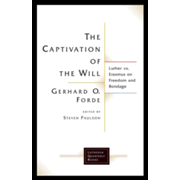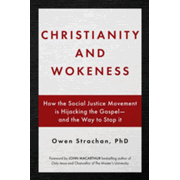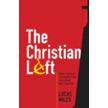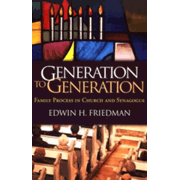AS PEOPLE of God who are made saints in the kingdom
through our baptism, today we read that which was taught to the first saints in the early Church. Depending on our lectionary preference, however, we can delve wonderfully into the Sermon on the Mount as told in the Gospel
According to Saint Luke or tilt toward Saint Matthew. Here. in this commonly quoted reading we discern what was
specific to Matthew’s faith community… so that we might carry from the text messages
for our own time…
Seeing
the crowds, he (Jesus) went up on the mountain, and when he sat down his
disciples came to him. And he opened his mouth and taught them, saying:
“Blessed are the poor in spirit, for theirs is
the kingdom of heaven.
“Blessed are those who mourn, for they shall
be comforted.
“Blessed are the meek, for they shall inherit
the earth.
“Blessed are those who hunger and thirst for
righteousness, for they shall be satisfied.
“Blessed are the merciful, for they shall
obtain mercy.
“Blessed are the pure in heart, for they shall
see God.
“Blessed are the peacemakers, for they shall
be called sons of God. “Blessed are those who are persecuted for righteousness’
sake, for theirs is the kingdom of heaven.
“Blessed are you when men revile you and
persecute you and utter all kinds of evil against you falsely on my account. Rejoice
and be glad, for your reward is great in heaven, for so men persecuted the
prophets who were before you.
(Matthew
5:1-12)
 |
The Interlinear Hebrew-Greek-English Bible, One-Volume Edition By Jay P. Green |
Antioch
and the Burbs
We study a well-known biblical text
from Matthew today. Many a needlepoint club has sewed these words into cloth so that they
decorate the walls of homes. The Sermon on the Mount, likely having common
source to the Sermon on the Plain which is found in Luke, magnificently gives both
reality and prophecy to hearers and listeners. Recorded here by the Matthean gospel
author, and preserved by their community, the text delivered truth to our Lord’s early Church.
We concentrate here
on that which was the message specifically spoken to Matthew’s community. For example, comparing the two readings from
both Matthew and Luke, we note differences immediately emerge in the first
blessing. We find that the witness of Matthew contains the words, “in spirit”;
where Luke did not use these. Consequently, since we do not have the source text… and do not
know which is closest to the original, we can only theorize about the differences.
We must ask,
therefore.., “Was Matthew addressing Jewish Christians who felt shaky about
breaking away from the large, established and moneyed synagogue in Antioch or nearby Damascus?” Was it that Matthew
may not have wanted to offend wealthier members of the either community
adherents, knowing that financial resources were to be needed for future
ministries?
I believe both
may be true. Consider in our own day how many leaders of the modern Church
community have soft-pedaled a particular issue based on societal influences. I
consider that this may be likely here, due to strong presence of stronger Pharisaic
influences afflicting the church in Antioch. This may have been especially
true since this gospel likely written out of Syria displays more Jewish historical connection,
such as exhibited by its first chapter that includes the genealogy of Jesus.
This being true, subsequently a Pharisaic “Follow the Money” mentality of financial power may have been
a philosophy originally working subtly in a comfortable parent synagogue congregation. Therefore,
the writer of Matthew de-emphasized the issue. He deliberately told only of our
Lord’s “spirit” comforting of his infant Church by this emphasis. Luke's alternate reading emphasis on the "poor" probably wouldn't fly.
To reinforce
this theory, however, consider that there was indeed a heavy spiritual burden. My opinion is
based on the fact that Matthew remained tied only to matters spiritual as the
second blessing is pronounced. We note a differing of order in listing those
who are “blessed”. Where Luke addressed hunger, Matthew listed mourning. Was mourning
given higher precedence as his community was going through great spiritual
torment, as Christian adherents were shut off from inheritances? Did this result in the reordering and using the original sayings
source document in a differing sequence? Was he ministering especially to those
persons fevered by separation from the main synagogue?
You see, as the blessings progress through the reading we realize a repeated sway from the
earthly… to focusing on the spiritual. Matthew seemingly favored a spiritual
strengthening. Rather than just hunger, a hungering for righteousness is found. Rather than mentioning the poor as in Luke, Matthew stated
those pure in heart. Finally, those scorched by peacemaking efforts in the
synagogue were addressed.
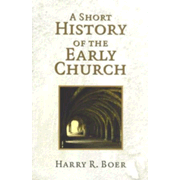 |
A Short History of the Early Church By Harry Boer / Wm. B. Eerdmans Publishing Co. For readers who want a brief yet reliable introduction to the history of the early Church as well as for those who are looking for a quick review of the period, this volume furnishes a concise overview of the key events, figures, controversies, and councils essential for a proper understanding of the first seven centuries of the Christian Church. Harry R. Boer provides background on the world into which the Church was born, surveys the life of the Church from the ministry of Jesus until 600 A.D., examines the effects of persecution and heresy on the Church, explains the role of several key Church leaders, and focuses specifically on the Church's ongoing struggle to formulate proper doctrines of the Trinity and of Christ. Each chapter is clearly outlined and concludes with several discussion questions that enhance the book's use as a study guide for Church groups or as a text in courses on early Church history. |
Finally
and Eternally…
Lastly we see a shift in the emphasis from what was
present at the time of the writing, to what was to be. Matthew echoed our
Lord’s words highlighting the prospective growing persecutions that lay
ahead for his faith community. Matthew became prophetic. He invited the
Christian community into the prophetic task. Here we have great agreement
with Luke’s telling, as found with the timeless pronouncement of the final blessed
outcome. From the latter decades of the first century come the words from both, as we read…
“great is your reward in heaven.”
We need pay
attention to this final similarity in the gospel accounts. The prophecy that
was present still applies to us. We live in a very active and interactive
world. Even while you now read this, we see a modern fact... that which is considered as spiritual quickly affects and forms that which is temporal. Our spiritual faith
in our salvation through Jesus Christ, given to us by God and expressed in the
world… should be quickly spoken out, taking deep root... for the spiritual soon becomes challenged by the Satanic.
However, know
that the power of the Word which is Christ does go out. In doing so, the gospel message
strengthens us even as we speak. Consequently, we modern Christians encounter the mayhem
of this world’s values and see tensions rise and fall. In the earthquakes of demonic
struggles, by the power of the Holy Spirit whether we are rich or poor, earthy
or spiritual, urban or rural, found in large or small faith community… certainty
and agreement through Holy Scripture does become certain. We know what the modern saint should look and sound like!
Be informed! Certainly those
baptized Christians who take up the cross and the task of evangelism shall be
oppressed in their doing so. This was predicted by both Matthew and Luke. As promised, however, that which we do today shall not go to poverty tomorrow.
Blessed are the poor who are wrongly impoverished by this world’s greed. Blessed
are the poor in spirit who yet wait for the advent of God’s kingdom. Great is their
reward! So it is written, and so it shall be.



